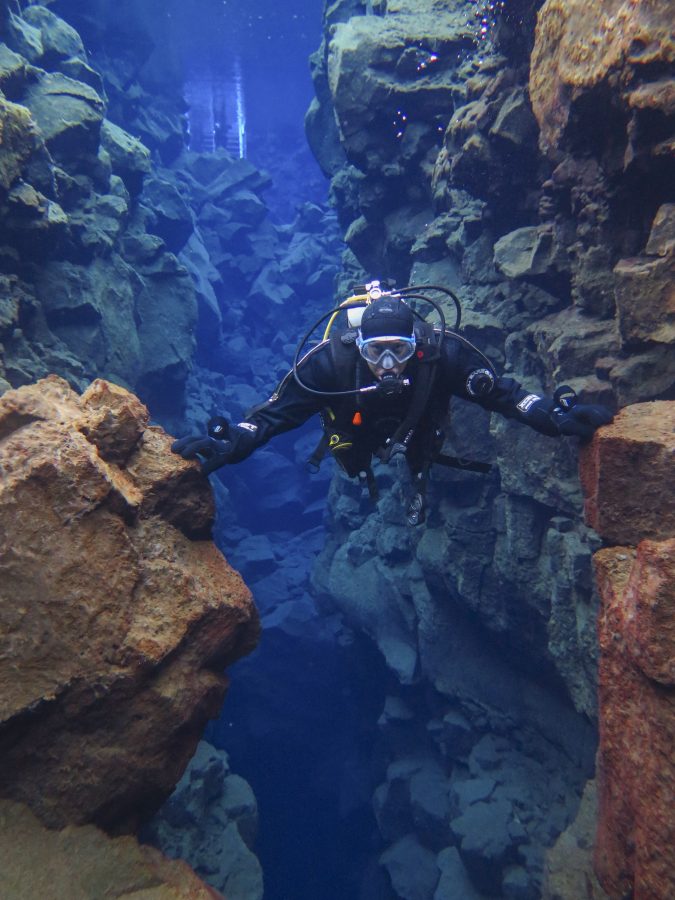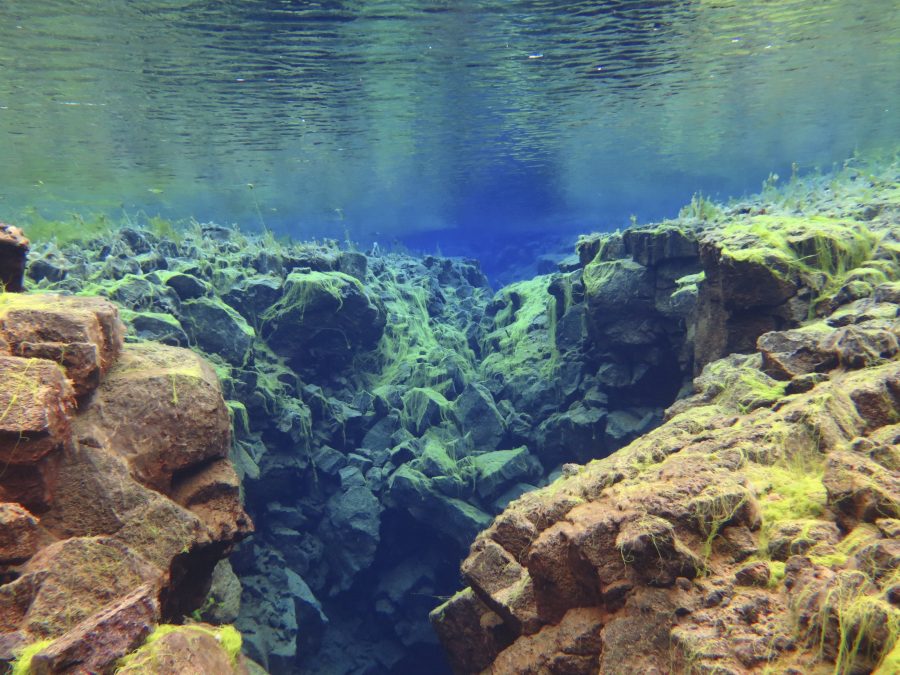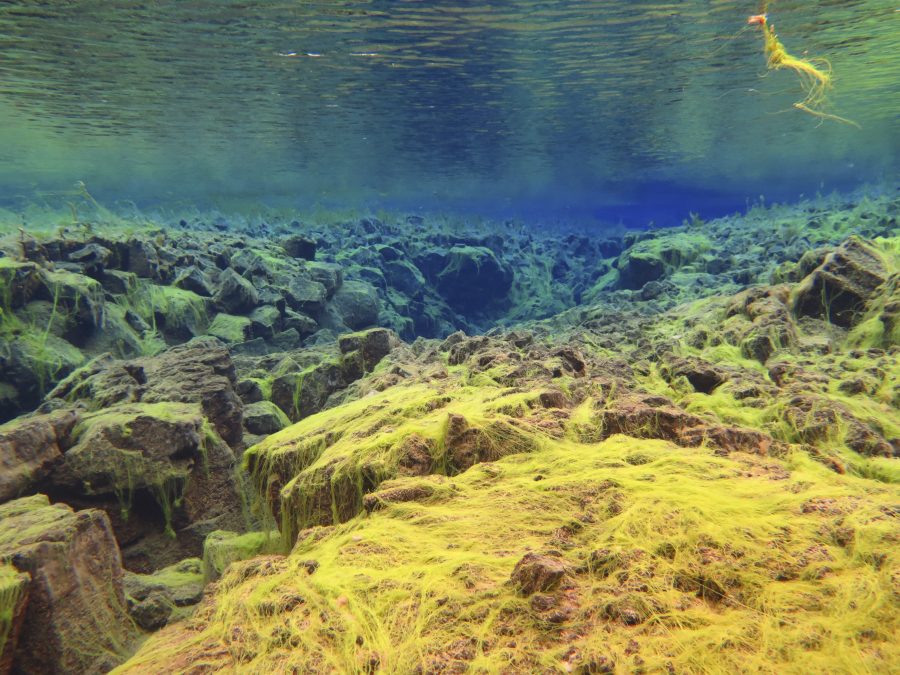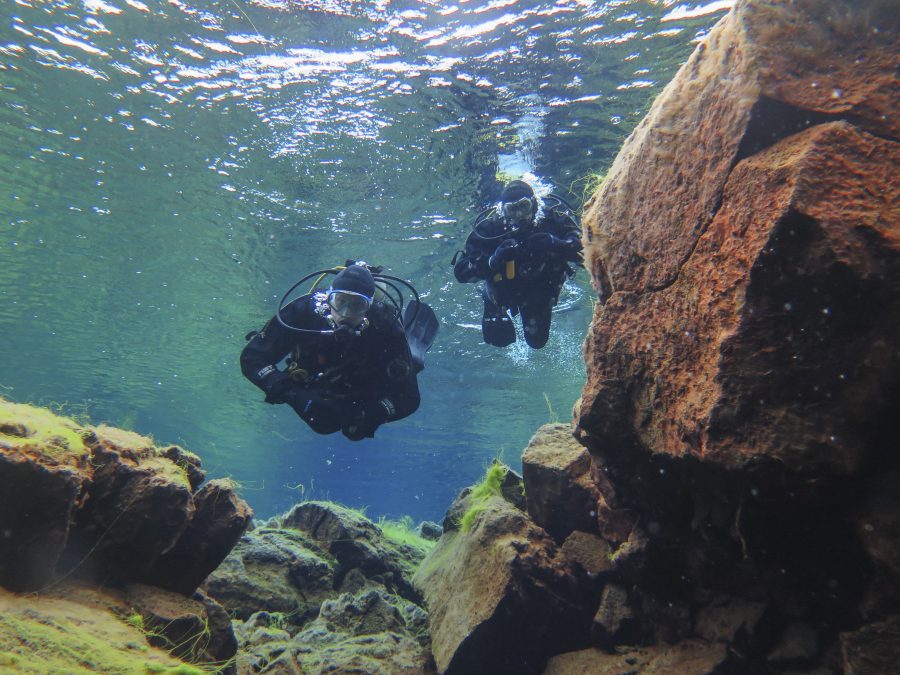After the wildlife-cruise to Greenland’s east and west coast, I stopped-over on Iceland to dive the world’s most famous freshwater dive site: Silfra. This geological fissure lies at the margin between the European and North American continental plates. This is among the most exhilarating places I have dived in my life thus far, not only due to its amazing geology but also the amazing visibility.

Even for its terrestrial landscape on its own, the volcanic island of Iceland is well worth a visit. Add 70+ meters of visibility in a freshwater-filled fissure between two tectonic plates, and you have every reason to go. In the middle of the north Atlantic, the wide continental shelves of Europe and North America extend all the way to Iceland. At Thinvallavatn National Park, the tectonic plates are exposed at the surface. There, glacial melt-water flows continuously through the Silfra fissure into an adjacent lake and removes any sediment from the water. Therefore, Silfra stays gin-clear all year around.

Eric Crossley from DIVE.IS took me for two dives at this spectacular place. While this is not usually a place for wildlife, we spotted an arctic char hiding between rocks on the bottom. In contrast to the mellow blue of the water and I suppose because of the clear visibility, the colour of the algae appeared iridescent. When it started to drizzle, the raindrops piercing the surface above us looked like stars in the sky. Looking down to the bottom of the fissure, huge boulders create a false bottom. Owing to the last glaciation which moved them into the crack, the rocks still pay tribute to enormous forces of nature. In its unique underwater environment, Silfra is sublime, showcasing the power of plate tectonics and glaciers.

Because of its scenic beauty, Silfra was well worth the brain-freeze from the 2°C glacial melt-water. Maybe because of the islands’ proximity to the magnetic north pole, I already feel drawn back to Iceland and Greenland.
